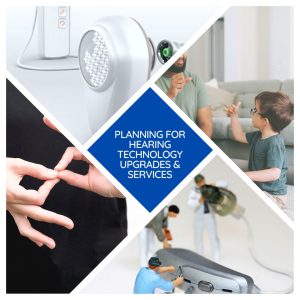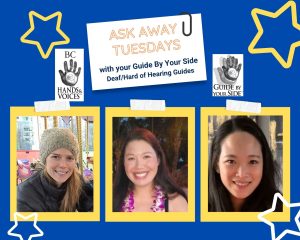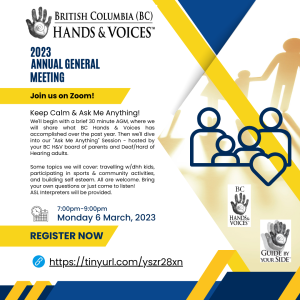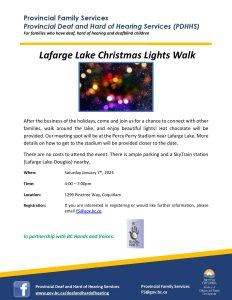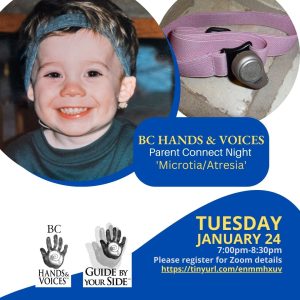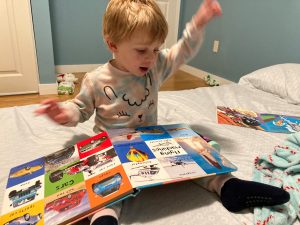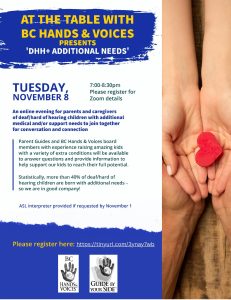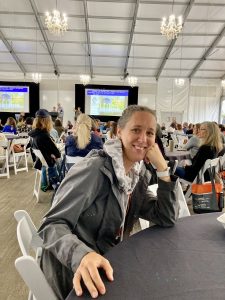By Kim & Ashley Shauer
Our daughter, Ashley, graduated from high school this year and we have enjoyed reminiscing about different aspects of her childhood together.
Ashley was almost 3 years old when her sister, Julia, was born with a rare chromosome 15 duplication and many health concerns. After discharge from the NICU, we suddenly had numerous appointments with a large team of medical professionals and our calm, relaxed home had unexpectedly become a revolving door of service providers. While this provided a whirlwind of wonderful support, we naturally worried about how this upheaval may affect Ashley and her relationship with Julia.

Growing up with a deaf/hard of hearing sister with additional disabilities offers a unique perspective, so I was thrilled that Ashley was willing to share her experiences so far growing up as an “exceptional” sibling!
KS – What was your relationship like with your sister when you were younger?
AS – When we were little, I loved to play school with her. We made forts (I was an expert fort maker). I taught her how to crawl and would clean the bedroom for us when we shared a room. Later on, we had a swing set and would swing beside each other and I would push her – she had an adaptive swing. When we got a trampoline, she would love laying on it while I bounced her – and she still does! She gives me the biggest smiles and hugs. When I would wake up at night, I would go in her room and wake her up and say hi. She would just go back to sleep and I don’t think you ever heard me on the monitor!
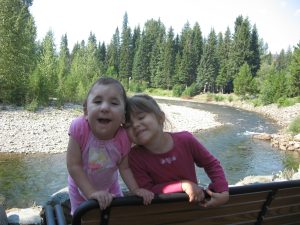
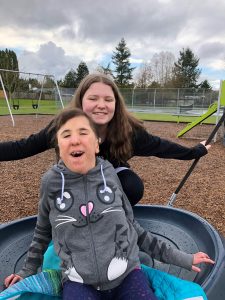
KS – I didn’t know that! How do you remember learning about Julia’s condition? I recall trying to keep information age-appropriate for you in the beginning, such as that she needs more help because her muscles are not as strong.
AS – When I was younger you explained it to me, but I still can’t remember what it’s called! Something like, your sister was born with a rare condition that includes hearing loss and a variety of other things…mostly I remember that I loved to pick the colours and sparkles for the ear molds of her hearing aids. I was 4 so I usually picked pink & purple!
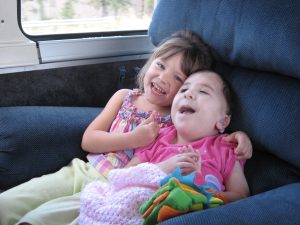
KS – We had received parenting advice about the importance of parents setting aside extra time for each child in a family, particularly when one needed more attention due to medical needs. I loved our evenings together after Julia went to bed.
AS: I remember every night you would give me a piggy back ride upstairs. I know you did that for too long – till I was about 9 years old! I think that was one of the reasons we ended up moving – ha ha! I loved reading together before bed and talking about how our day was.
KS: What are some of your favourite holiday memories?
AS: Going to Kelowna for Christmas, trick or treating at Grandma’s house, going to the Disney Hawaii resort for Julia’s Make-A-Wish Trip and staying in the cabin along the river in Manning Park – besides going camping or staying with family that felt like our first real family holiday.
KS: What do you remember about the many appointments we had in Vancouver?
AS: They would usually give me stickers and I could pick which one I wanted. I also remember we usually did something fun afterwards. We’d go to the Aquarium & Science world more than anyone else I knew!
KS: I was away with Julia periodically during different surgeries and hospital stays. What do you remember about some of those times?
AS: You always explained why you were at the different doctors so I was never wondering what you were doing. I remember staying with Grandma and Grandpa. Sometimes I missed you guys when it was a long hospital stay but I liked going to my grandparents’ house.
KS: When do you remember meeting other siblings who had brothers or sisters with some similar medical or support needs? Was it nice to know there were other families like ours?
AS: We would go to special events and do fun things with different organizations. At Zajac Ranch family camp, I remember playing with other kids, but we didn’t really think anything of it at that age, we just played. Later when Julia played Challenger Baseball, I went to the playground a couple times with another sibling.
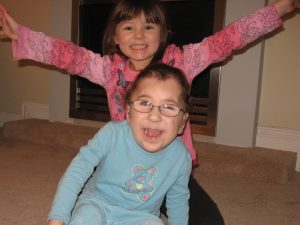
KS: I remember you being so confident and proud of your sister when you were little and I took such strength from your positive attitude! You would notice people staring at Julia and sometimes I wouldn’t know the best way to react. One time when I didn’t know how to respond to someone, you took over, gave Julia a big hug, and while she smiled you said to the staring adult, “Isn’t she just the cutest baby in the world!” I still share that with other new parents.
AS: Yes, people would be so weird sometimes when we were out.
KS: I remember when I was looking at Kindergarten placements for Julia, you really wanted your sister to go to your elementary school just as your friends had their siblings at the school. Did other kids at school ask you questions about Julia and how did you handle those situations?
AS: I don’t really remember kids asking me anything or not being nice. Many were quite interested and when the school started the Sign Language Club at lunch, lots of kids went. In grade 7 when friends were seated away from each other for talking too much, they would sign to each other so that was cool. They probably wouldn’t have learned otherwise.
KS: Then when it came high school, neither you nor your friends wanted your younger siblings to go to your high school! I appreciated that you also shared with me that you just wanted to be your own person again, instead of being known as “Julia’s sister”. I remember one of your other concerns at the time was that you might get called out of your classes to help her and could miss important information. How did it work out? (Due to the pandemic we couldn’t look at other high school options so she did end up going to the same high school).
AS: It was fine. I was never called to help with anything. It’s a huge school so I actually rarely saw her!
KS: How do you think having Julia as your sister has affected your personality?
AS: I’m patient, empathetic and less judgmental. I am probably more mature since I had to grow up a bit faster in some ways. I’m not selfish or bossy. I have more understanding of the disability community because we get it and those who aren’t, don’t get it. I’m a good observer, watching and making sense of sounds and non-verbal cues. I read Julia really well and understand her language.
KS: You are one of her favourite people! What are your hopes for your sister for the future? What does she enjoy most in life?
AS: She likes structure in her life and being with others. I hope she is happy and has fun daytime things to do that she enjoys.
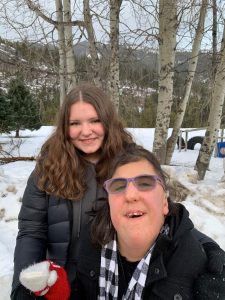
KS: What are your plans and hopes for yourself for the future?
AS: I will be going to university and plan to go into something that helps other people, not sure what that will be yet. I’m not sure how Julia has shaped that, I may have done that anyway.
KS: This might be my favorite conversation! Is there anything else you would like to say or share with other families or siblings? Pieces of advice?
AS: Everything happens for a reason. Live the best life you can.
Editor’s Note: It is with broken hearts that we share the news that sweet Julia passed away peacefully in the early hours of December 24, 2022. She will be dearly missed by her family and friends, as well as the many support providers and teachers who were lucky enough to work with her over the years. Julia’s life was short, but the impression she left on the lives of others will never be forgotten.

